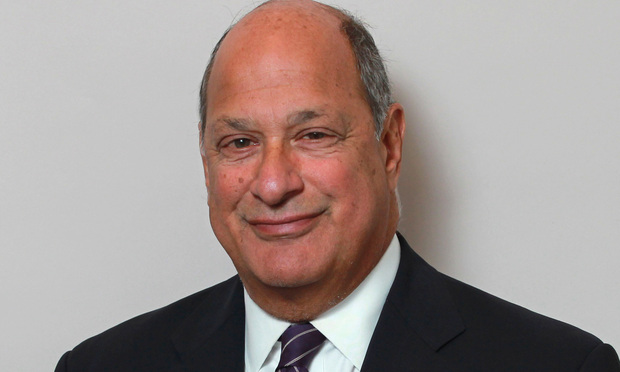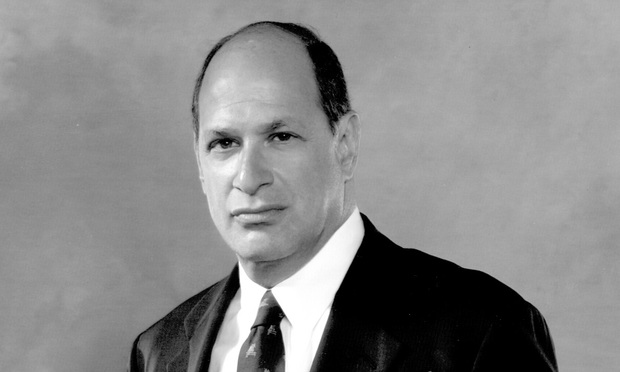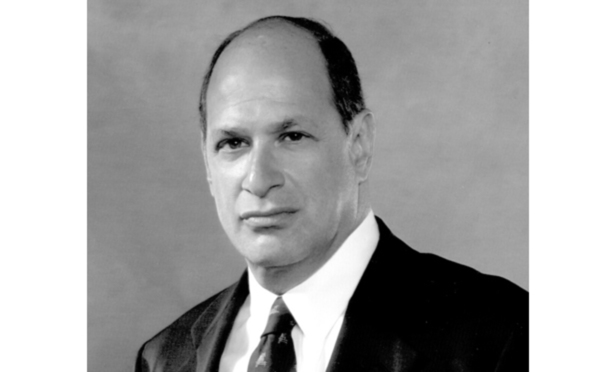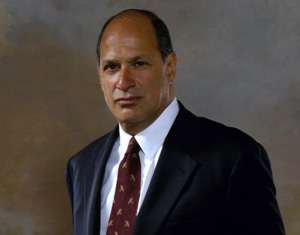Joel Cohen

April 14, 2015 | New York Law Journal
Your Client's Intractable Demands—And Your Effort to WithdrawIn his Ethics and Criminal Practice column, Joel Cohen writes: Balancing legal and ethical obligations—to a client, an adversary, the court and ourselves—is not easy. When confronted with a client who wants to do something you know he can't legally do, or who wants you to do something you know you can't legally or ethically do, sitting by idly is not an option.
By Joel Cohen
13 minute read

April 13, 2015 | New York Law Journal
Your Client's Intractable Demands—And Your Effort to WithdrawIn his Ethics and Criminal Practice column, Joel Cohen writes: Balancing legal and ethical obligations—to a client, an adversary, the court and ourselves—is not easy. When confronted with a client who wants to do something you know he can't legally do, or who wants you to do something you know you can't legally or ethically do, sitting by idly is not an option.
By Joel Cohen
13 minute read

February 09, 2015 | New York Law Journal
The Lawyer's Duty to Check FactsIn his Ethics and Criminal Practice column, Joel Cohen discusses the Tawana Brawley debacle of 26 years ago, and current cases involving Alan Dershowitz and Mark Zuckerberg, writing: What is the role of a lawyer when asked to represent a client? Must lawyers "Google" their (prospective) clients to learn "who" they're dealing with—meaning how reliable they're likely to be?
By Joel Cohen
13 minute read

February 06, 2015 | New York Law Journal
The Lawyer's Duty to Check FactsIn his Ethics and Criminal Practice column, Joel Cohen discusses the Tawana Brawley debacle of 26 years ago, and current cases involving Alan Dershowitz and Mark Zuckerberg, writing: What is the role of a lawyer when asked to represent a client? Must lawyers "Google" their (prospective) clients to learn "who" they're dealing with—meaning how reliable they're likely to be?
By Joel Cohen
13 minute read

December 09, 2014 | New York Law Journal
Constraining Opinions and the Ethics of 'I Believe'In his Ethics and Criminal Practice column, Joel Cohen writes: Whether couched in "I am telling you" or "I know" or "I guarantee" or other similar language, the fundamental rule—that a lawyer must not insert her opinion into the proceedings—is found not only in civil and criminal case law, but is a matter of black letter pronouncement. But can't an argument be made that is precisely what lawyers should do in order to fiercely advocate for the client? In a word, "no," and for myriad reasons.
By Joel Cohen
12 minute read

September 17, 2014 | New York Law Journal
'Let Right Be Done': When Prosecutors Have a Higher DutyIn his Ethics and Criminal Practice column, Joel Cohen writes: Most prosecutors believe that a defendant who has been convicted is guilty and that defense counsel does little more than look for loopholes to get their (guilty) client off, or at least, the best deal possible. I certainly did! And, typically, prosecutors proceed with this professional mind-set in good faith. The rules of professional conduct don't require otherwise. Maybe.
By Joel Cohen
14 minute read

August 12, 2014 | New York Law Journal
When Prosecutors Treat Counsel DifferentlyIn his Ethics and Criminal Practice column, Joel Cohen writes that although no defendant is entitled to "open file" discovery—where prosecutors completely open their case files to the defense attorney, wheat, chaff and all—some prosecutors, particularly if they trust the defense lawyer on the other side, actually do informally engage in it. But are there any ethical restrictions that frown the practice, which can result in disparate treatment to defendants (or their lawyers)?
By Joel Cohen
13 minute read

June 10, 2014 | New York Law Journal
Must White-Collar 'Suspects' Be Forewarned?In his Ethics and Criminal Practice column, Joel Cohen write that law enforcement officials are not required to advise individuals who voluntarily offer to speak with them that they are suspects. So is the commotion over what happened to Zachary Warren of Dewey & LeBoeuf, who was asked to attend a meeting with the SEC where the district attorney's office was present without being told that he was a criminal target, justified?
By Joel Cohen
13 minute read

April 08, 2014 | New York Law Journal
'Crime Fraud' and the Lawyer's DutyIn his Ethics and Criminal Practice column, Joel Cohen, of counsel at Stroock & Stroock & Lavan, writes that it is entirely appropriate for a client to approach a lawyer seeking to obtain an (ostensibly) expert opinion as to whether the conduct that he might wish to pursue is, in fact, legal or illegal. But when the client pursues that conduct despite the lawyer's warning not to, and the attorney is asked to testify, what is the ethical thing to do?
By Joel Cohen
13 minute read

February 21, 2014 | Law.com
Should Judges Intervene?Should judges be able to reject settlements between parties when the government is one of the litigants? Law.com columnist Joel Cohen weighs in.
By Joel Cohen
7 minute read
Trending Stories
- 1Gibson Dunn Sued By Crypto Client After Lateral Hire Causes Conflict of Interest
- 2Trump's Solicitor General Expected to 'Flip' Prelogar's Positions at Supreme Court
- 3Pharmacy Lawyers See Promise in NY Regulator's Curbs on PBM Industry
- 4Outgoing USPTO Director Kathi Vidal: ‘We All Want the Country to Be in a Better Place’
- 5Supreme Court Will Review Constitutionality Of FCC's Universal Service Fund
More from ALM
- Legal Speak at General Counsel Conference East 2024: Match Group's Katie Dugan & Herrick's Carol Goodman 1 minute read
- Legal Speak at General Counsel Conference East 2024: Eric Wall, Executive VP, Syllo 1 minute read
- Legal Speak at General Counsel Conference East 2024: Virginia Griffith, Director of Business Development at OutsideGC 1 minute read



